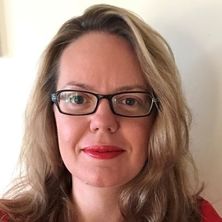
Overview
Background
Mel’s research uses social and health psychology theories to understand altruistic behaviour such as donating substances of human origin (e.g., organs/tissue, blood, breast milk). Mel has worked in research roles for over a decade in academic and non-profit organisations and has undertaken competitive university and industry-based research fellowships which focused on mitigating social or health problems. Mel is particularly interested in applied research that contributes to solving real world problems. She has over 100 peer-reviewed publications including many focused on blood donation, milk donation, organ donation and communicating donation wishes as well as volunteering, other health behaviours that have been published in Health Psychology, Transfusion, Transfusion Medicine Reviews, Progress in Transplantation, Non-profit and Voluntary Sector Quarterly, Journal of Applied Social Psychology, Psycho-Oncology, and Accident Analysis and Prevention.
Availability
- Dr Mel Hyde is:
- Not available for supervision
Fields of research
Qualifications
- Bachelor (Honours), Queensland University of Technology
- Doctor of Philosophy, Queensland University of Technology
Research interests
-
Donor recruitment, retention, and consent
Living and deceased donors of substances of human origin (SoHO) (e.g., blood/blood products, bone marrow/stem cells, organs, faecal microbiota, human breast milk); consent systems (e.g., opt-in, opt-out); consent for donation (e.g., joining a donor registry, family discussion of donation wishes). If you are interested in donor research see the Donor Research Network https://research.psy.uq.edu.au/dorn/
Works
Search Professor Mel Hyde’s works on UQ eSpace
2009
Journal Article
Student and Community Perceptions about Organ Donors, Non-donors and Transplant Recipients
Hyde, Melissa K. and White, Katherine M. (2009). Student and Community Perceptions about Organ Donors, Non-donors and Transplant Recipients. Journal of Community & Applied Social Psychology, 19 (2), 125-141. doi: 10.1002/casp.979
2009
Journal Article
Predicting blood donation intentions and behavior among Australian blood donors: Testing an extended theory of planned behavior model
Masser, Barbara M., White, Katherine. M., Hyde, Melissa K., Terry, Deborah. J. and Robinson, Natalie. G. (2009). Predicting blood donation intentions and behavior among Australian blood donors: Testing an extended theory of planned behavior model. Transfusion, 49 (2), 320-329. doi: 10.1111/j.1537-2995.2008.01981.x
2009
Journal Article
Knowing a donor and identifying as one: Determinants of people's willingness for related and anonymous living donation in Australia
Hyde, Melissa K. and White, Katherine M. (2009). Knowing a donor and identifying as one: Determinants of people's willingness for related and anonymous living donation in Australia. Psychology Health & Medicine, 14 (5), 524-535. doi: 10.1080/13548500903012855
2008
Journal Article
Predicting intentions to donate blood among nondonors in Australia: an extended theory of planned behavior
Robinson, Natalie G., Masser, Barbara M., White, Katherine M., Hyde, Melissa K. and Terry, Deborah J. (2008). Predicting intentions to donate blood among nondonors in Australia: an extended theory of planned behavior. Transfusion, 48 (12), 2559-2567. doi: 10.1111/j.1537-2995.2008.01904.x
2008
Journal Article
Dialling and driving: Factors influencing intentions to use a mobile phone while driving
Walsh, Shari P., White, Katherine M., Hyde, Melissa K. and Watson, Barry (2008). Dialling and driving: Factors influencing intentions to use a mobile phone while driving. Accident Analysis and Prevention, 40 (6), 1893-1900. doi: 10.1016/j.aap.2008.07.005
2008
Journal Article
Testing an extended theory of planned behaviour to predict young people's sun safety in a high risk area
White, Katherine M., Robinson, Natalie G., Young, Ross McD., Anderson, Peter J., Hyde, Melissa K., Greenbank, Susan, Rolfe, Toni, Keane, Julie, Vardon, Paul and Baskerville, Debra (2008). Testing an extended theory of planned behaviour to predict young people's sun safety in a high risk area. British Journal of Health Psychology, 13 (3), 435-448. doi: 10.1348/135910707X210004
2008
Journal Article
Predicting Attendance at Peer-Assisted Study Sessions for Statistics: Role Identity and the Theory of Planned Behavior
White, Katherine M., Thomas, Ian, Johnston, Kim L. and Hyde, Melissa K. (2008). Predicting Attendance at Peer-Assisted Study Sessions for Statistics: Role Identity and the Theory of Planned Behavior. Journal of Social Psychology, 148 (4), 473-491. doi: 10.3200/SOCP.148.4.473-492
2008
Journal Article
Young people and sun safety: the role of attitudes, norms and control factors
Robinson, Natalie G., White, Katherine M., Young, Ross McD., Anderson, Peter J., Hyde, Melissa K., Greenbank, Susan, Keane, Julie, Rolfe, Toni, Vardon, Paul and Baskerville, Debra (2008). Young people and sun safety: the role of attitudes, norms and control factors. Health Promotion Journal of Australia, 19 (1), 45-51. doi: 10.1071/he08045
2008
Journal Article
Exploring young people’s beliefs and images about sun safety
White, Katherine M., Robinson, Natalie G., Young, Ross McD., Anderson, Peter, Hyde, Melissa K., Greenbank, Susan, Keane, Julie, Rolfe, Toni, Vardon, Paul and Baskerville, Debra (2008). Exploring young people’s beliefs and images about sun safety. Youth Studies Australia, 27 (4), 43-49.
2008
Journal Article
The Psychology of Blood Donation: Current Research and Future Directions
Masser, Barbara M., White, Katherine M., Hyde, Melissa K. and Terry, Deborah J. (2008). The Psychology of Blood Donation: Current Research and Future Directions. Transfusion Medicine Reviews, 22 (3), 215-233. doi: 10.1016/j.tmrv.2008.02.005
2008
Journal Article
Exploring the beliefs underlying attitudes to active voluntary euthanasia in a sample of australian medical practitioners and nurses: a qualitative analysis
White, Katherine M., Wise, Susi E., Young, Ross Mcd and Hyde, Melissa. K. (2008). Exploring the beliefs underlying attitudes to active voluntary euthanasia in a sample of australian medical practitioners and nurses: a qualitative analysis. Omega: Journal of Death and Dying, 58 (1), 19-39. doi: 10.2190/OM.58.1.b
2007
Journal Article
Young Australian adults' knowledge and beliefs about organ donation
Hyde, Melissa K. and White, Katherine M. (2007). Young Australian adults' knowledge and beliefs about organ donation. Progress in Transplantation, 17 (3), 220-227. doi: 10.1177/152692480701700310
Supervision
Availability
- Dr Mel Hyde is:
- Not available for supervision
Supervision history
Completed supervision
-
2023
Doctor Philosophy
Peer support for maintaining physical activity after exercise interventions in people living with and beyond cancer
Associate Advisor
Media
Enquiries
For media enquiries about Dr Mel Hyde's areas of expertise, story ideas and help finding experts, contact our Media team:
